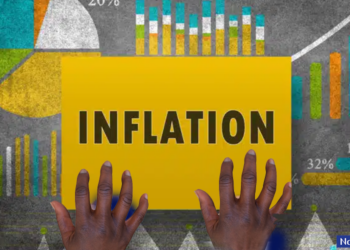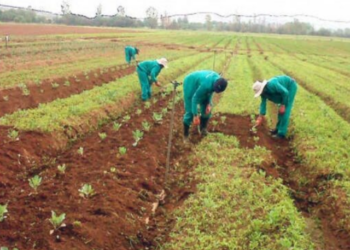The World Bank has stated that weaknesses in Sub-Saharan Africa’s biggest economies Nigeria, South Africa and Angola will limit the region’s growth in 2024.
The Bretton Wood Institute stated this in its Global Economic Prospects for 2024 where it disclosed that the global economy is set for its worst performance in three decades.
According to the report, the SSA region is projected to grow at 3.8% in 2024 and 4.1% in 2025 due to a reduction in inflation and ease in monetary policies.
Furthermore, the report noted that the slow growth region’s largest economies Nigeria, South Africa and Angola will drag down overall growth in the region. Excluding the region’s largest economies, the Sub-Saharan region will see an uptick in growth from its projected 3.8% in 2024 and 4.1% in 2025 to 5% in 2024 and 5.3% in 2025.
- It stated, “Excluding the three largest SSA economies, growth in the region is expected to accelerate from 3.9% in 2023 to 5% in 2024, and a further 5.3% in 2025.
- “Although waning inflationary pressures should allow for a gradual easing of interest rates, thereby bolstering private consumption and investment during the forecast period, the weaknesses in the region’s three largest economies will limit the pickup in SSA’s growth.”
Growth projection for Nigeria and South Africa
The bank pegged economic growth in Nigeria for 2024 at 3.3% and 3.7% in 2025. It noted that the cash scarcity and low oil production at the beginning of the year badly hurt the economy in 2023 but expects inflation in 2024 to ease as new reforms bear fruits.
For South Africa whose economy in 2023 was bedraggled by a surge in power cuts and transport bottlenecks greatly undermining the manufacturing sector, growth was forecasted at 1.3% and 1.5% in 2024 and 2025 respectively.
What you should know
- Nigeria and South Africa are not only the SSA’s biggest economies but Africa’s biggest economies. When combined, they make up about 43% of Africa’s 2.06 trillion GDP. However, these continental giants have been faced with a series of economic woes in recent times.
- For Nigeria, economic growth in 2023 has not reached its projections for the year. In the third quarter, GDP grew by 2.52% as disruptive currency demonetization policy was implemented in the first quarter of 2023 and recent reforms continue to have a toll on the economy. Despite this, there was a positive development in annual oil production, rebounding after a notable decline in the preceding years.
- The South African economy has been held back by an energy crisis, coupled with transportation bottlenecks, and diminished demand amid sluggish job creation, elevated prices, and tightening monetary policies. Notably, power outages reached unprecedented levels in 2023, significantly impeding manufacturing and mining production.






















